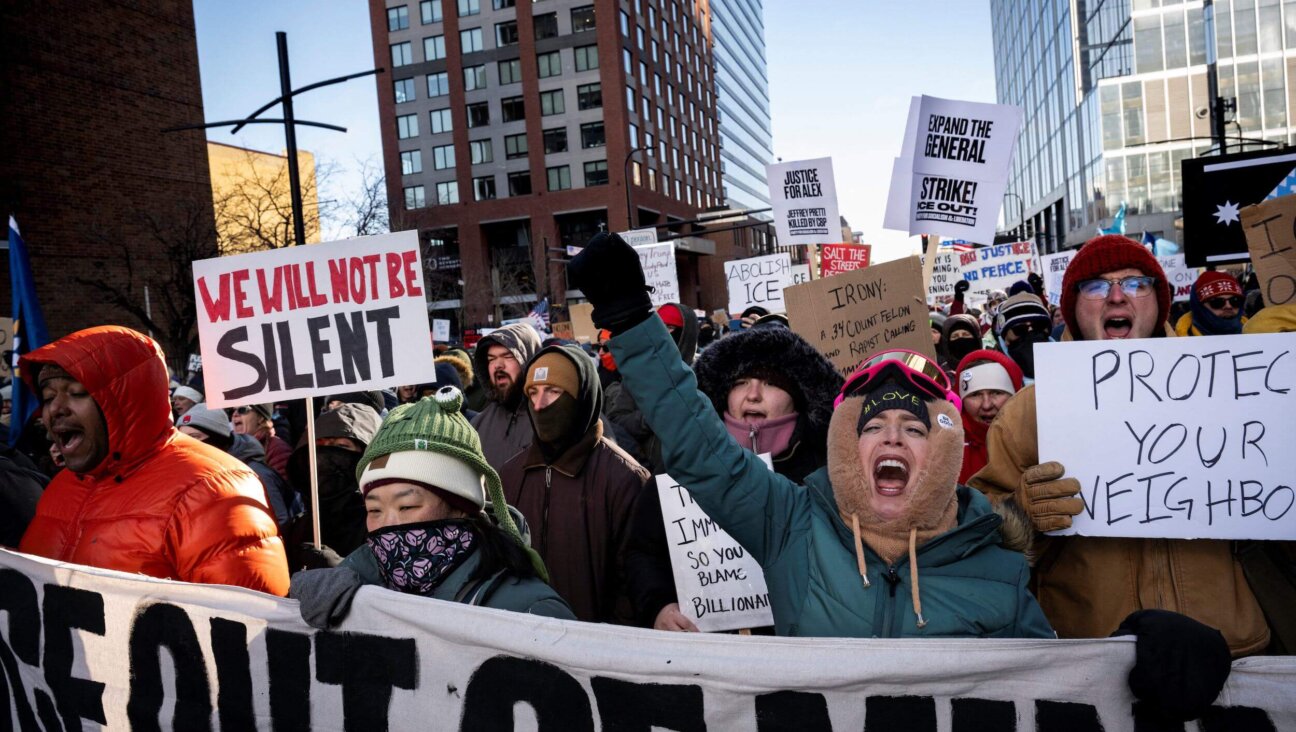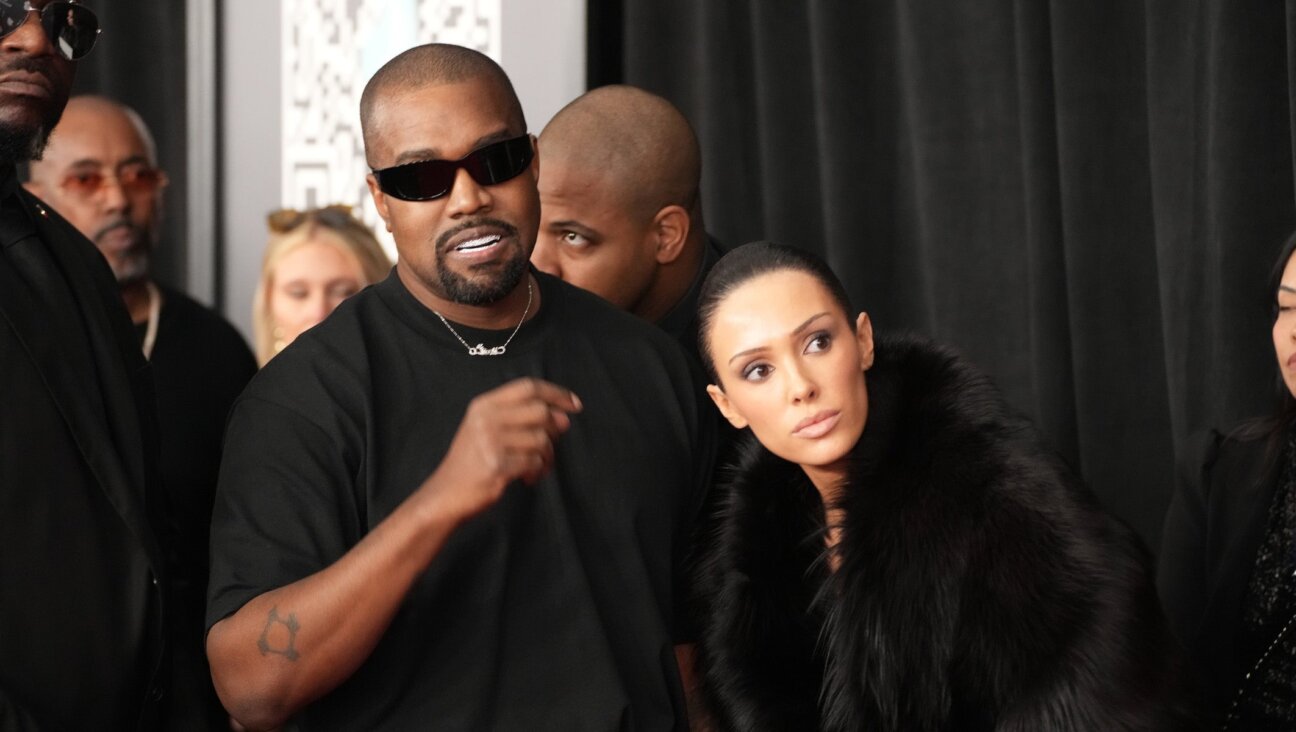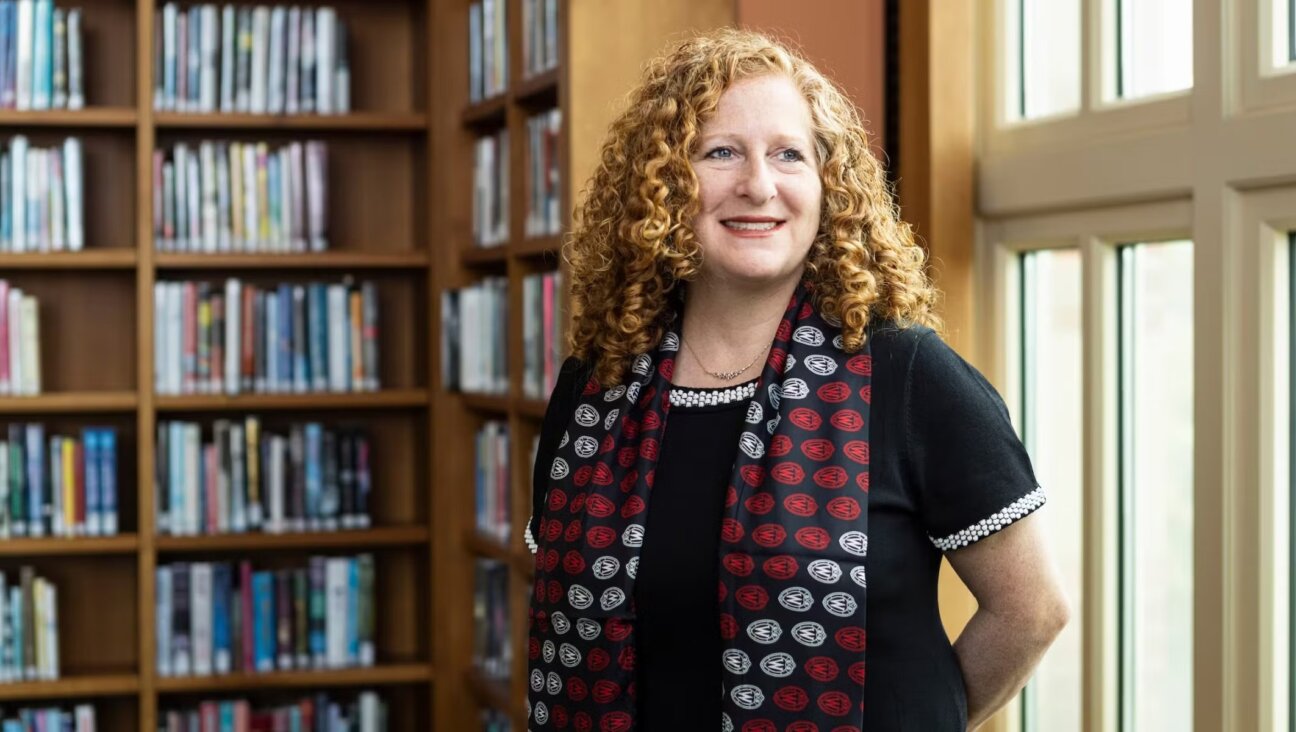What Did the Orthodox Do Now?!

Another World: Ultra-Orthodox Jewish children wear handcuffs as they protest Israel’s draft law. Image by Getty Images
Did you hear the one about the rabbi who blamed Hurricane Sandy on gay people? Or about the sex-segregated playground for Satmar children? What about the recent story about the ultra-Orthodox belief that shorter wigs lead to fewer tragedies? And did you read those personal stories from former Haredi Jews about being taught that the sun is not a star, or finding the strength to refuse to shave one’s head.
Chances are, you have probably seen some version of these stories in recent years, whether on the bookshelf or in your newspaper, present company included.
There’s a good reason for the proliferation. The stories shed an important light on the backward and often misogynistic practices of some Orthodox communities, while also offering an exit strategy to those subjected to them. But I fear we’ve reached a tipping point with these tales. Our interest has morphed from an authentic, even humane, curiosity to a fascination rooted in a hunger for sensationalism, shame and that smug feeling one gets when his worldview is validated.
The problem here isn’t the writers. As the Forward’s Ezra Glinter notes in his recent essay on ex-Orthodox memoirists, many of them are talented and offer incisive portals into the worlds they left. The reporting by outsiders is also often deep and investigative. The problem is us, the audience; we have not been Orthodox, and we have no intentions of ever becoming so, but we just can’t get enough of the anachronistic goings-on inside the eruv.
For one, our absorption in these stories reveals a crude laziness. The Orthodox are becoming our very own Angelina Jolies and Brad Pitts, tabloid stars whose every misstep is quickly turned into clickbait. A whole community of Jews is being reduced to a kind of caricature in stories that often traffic in stereotypes.
And at the memoir end of this genre it’s no wonder that you can find many women, who have long been called upon to write confessional journalism. Former New Yorker editor Tina Brown, when heading The Daily Beast, reportedly asked women to write “‘personal histories that feature self-loathing and lurid intimate disclosures,” according to the writer Virginia Heffernan, and today websites like xoJane continue to lure women into earning a byline through confessional writing.
There is a place for confessional writing and personal narratives; when done well, and with nuance, the experience of the individual casts light unto the universal. But when this writing ends up simply comprising a women’s genre, the implicit message is that women are not competent enough to be objective observers of the outside world, and should be trusted only with their pasts and inner lives for copy. Again, much good has come from this, but so has a culture in which the girl with the more harrowing experience, the more arduous struggle and, ultimately, the juiciest headline wins.
Still, the bigger problem with this whole “The Orthodox did what?” news cycle is that it is a lazy one. We aren’t really interested in the Orthodox. We aren’t willing to see a full picture, the good and the bad, the complexity of these many individuals living so differently than us. Instead, our appetites are limited to the salacious stories, those that shame them and allow us to pat ourselves on the back for being so much better.
Underneath this moral superiority, I believe there lives a well of much more complicated emotions toward the Orthodox — possibly including envy, nostalgia, jealousy or even just a raw curiosity. We are rarely forced to seek out these feelings or to ask any questions that might better help us understand them, and also ourselves as Jews. Also, let us not forget a basic lesson of the schoolyard: Degradation is contagious. We are all brought down by a taunt, our discourse compromised, our empathy blunted.
As it is now, our fixation with Haredi Jews leaves many of us with a Jewish identity that is progressively being defined by simply not being like them. An identity based on a void is not much of an identity at all, and for us on the non or less-observant side there is nothing truly Jewish at stake. As they get more observant, and we get less observant, this void will only continue to deepen, and the risk of us getting lost in it will only increase.
I’m not saying we should all become more religious; I have no plans to start covering my hair or even turning off my smartphone for the Sabbath. Just that we should put less effort into these inter-Jewish culture wars, and more energy into reimagining a Jewish life that engages us morally, socially and emotionally. This begins with what we read.
Elissa Strauss is a contributing editor to the Forward.

















